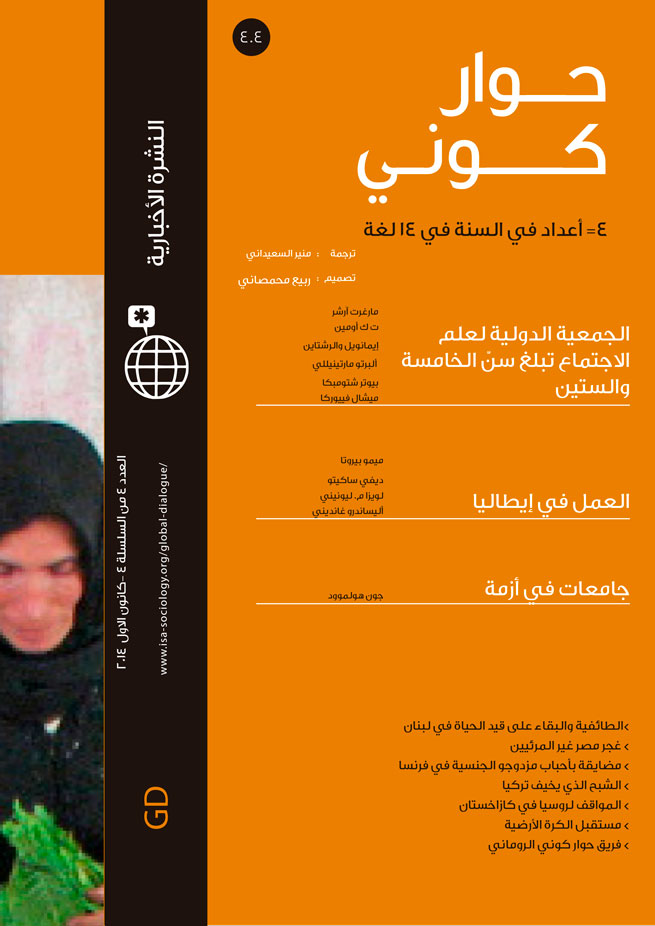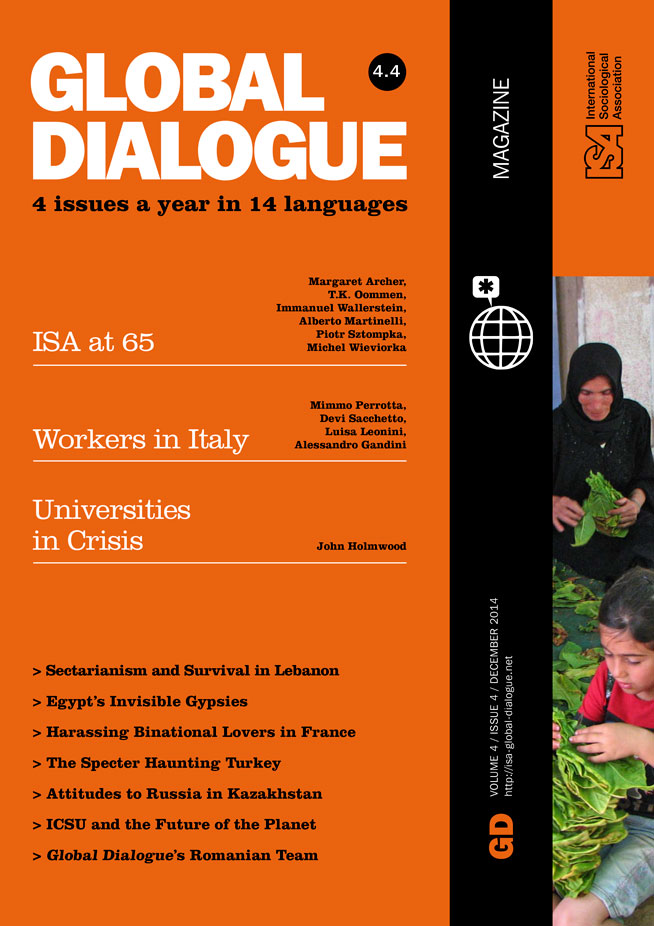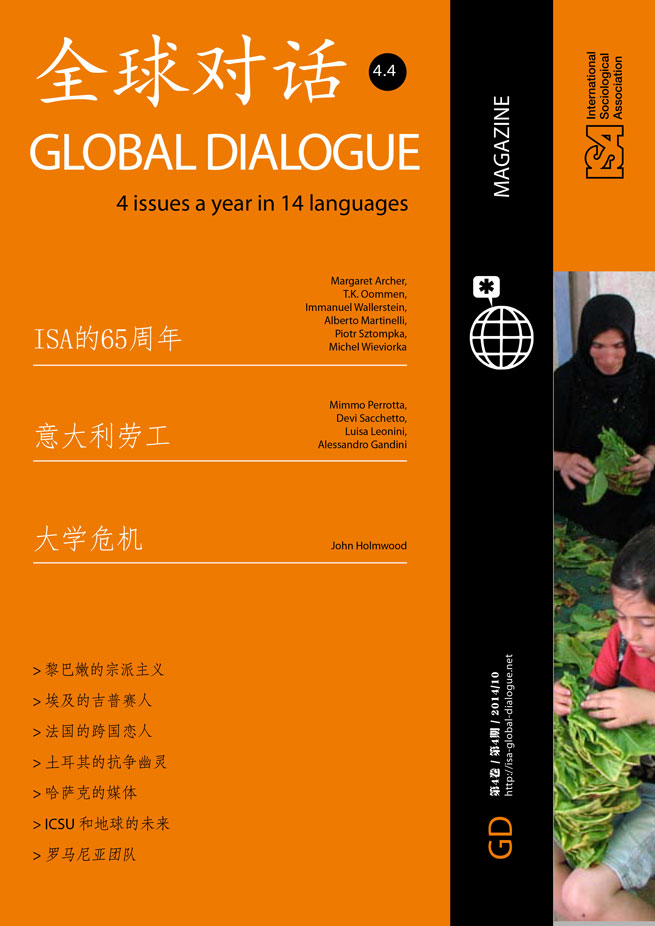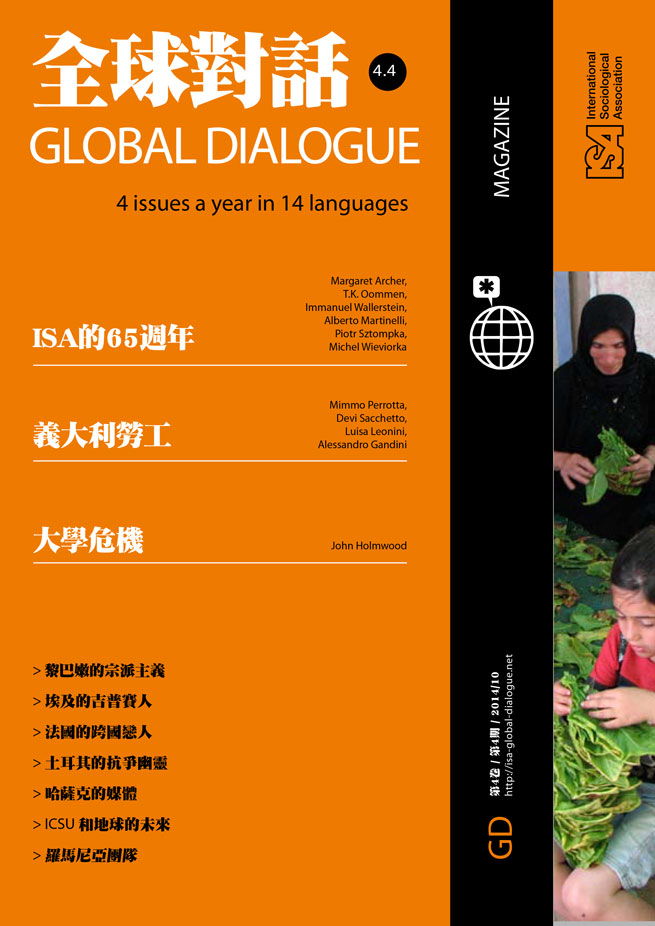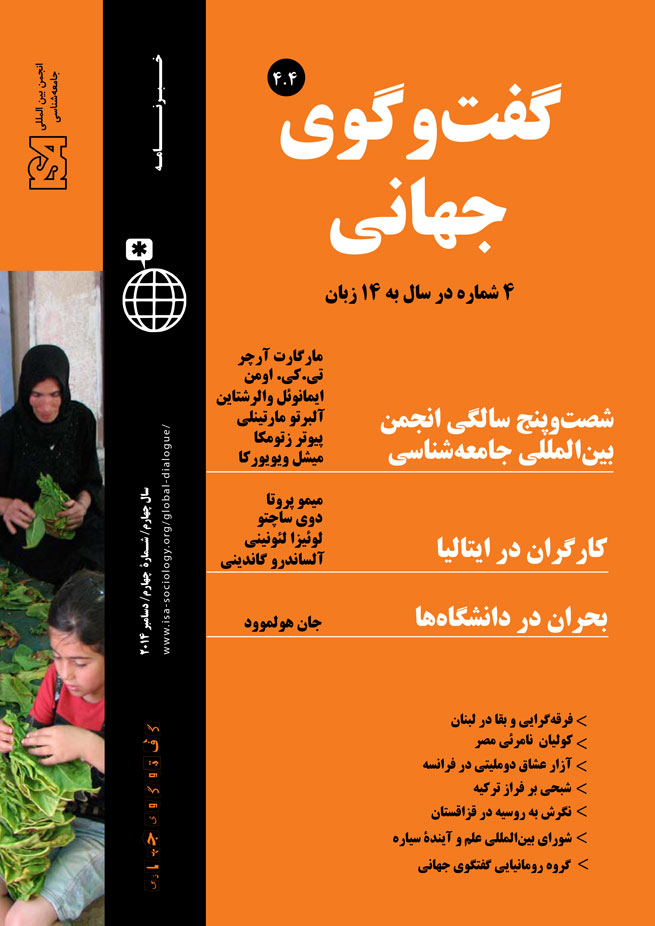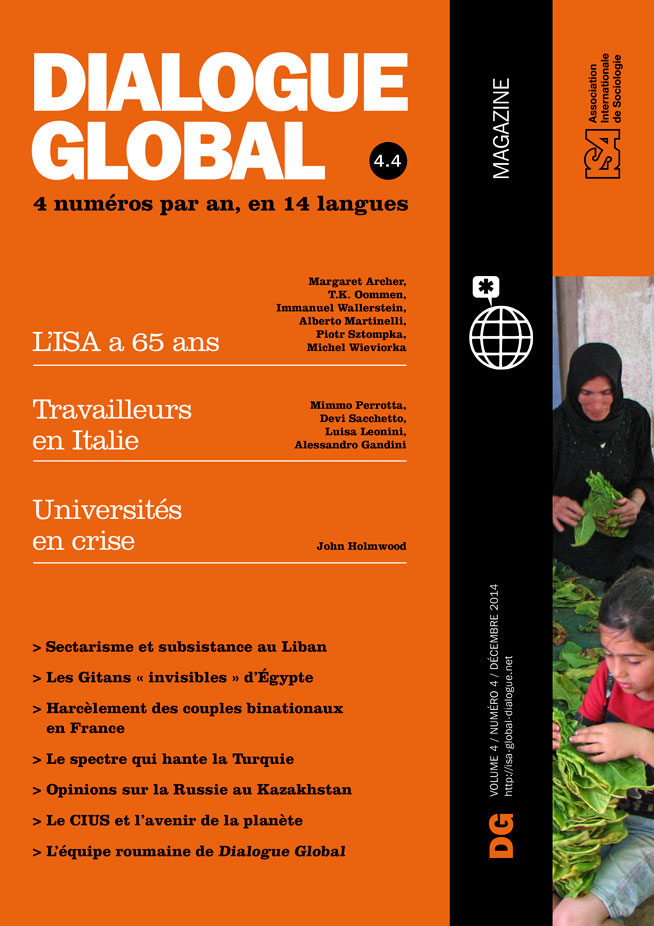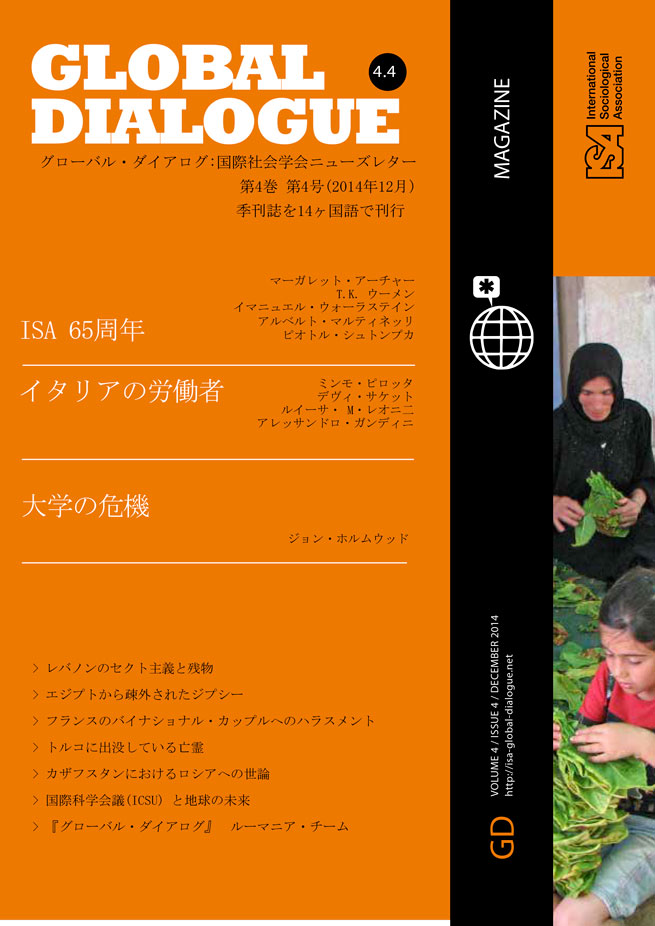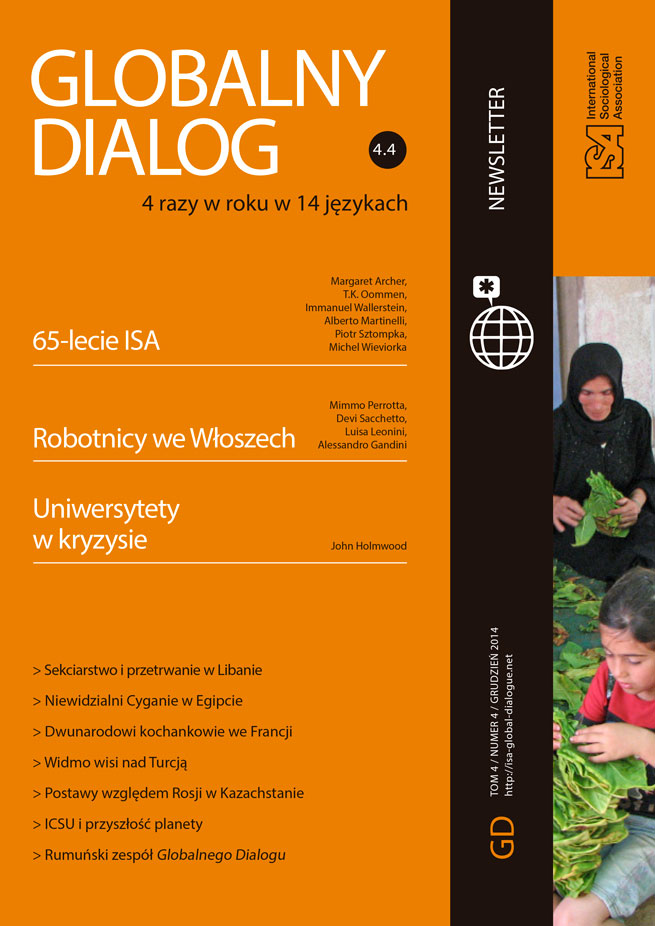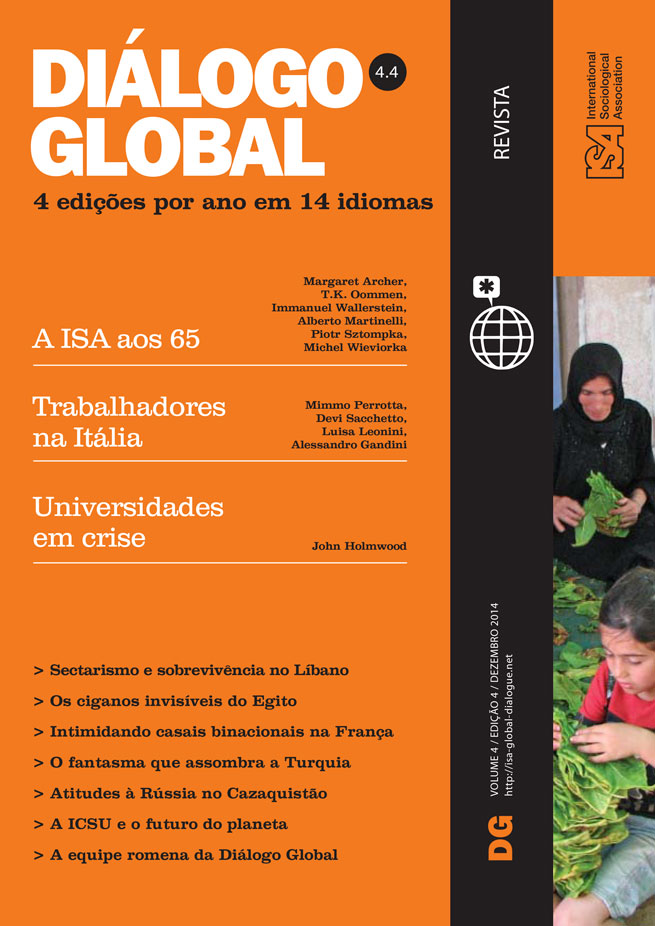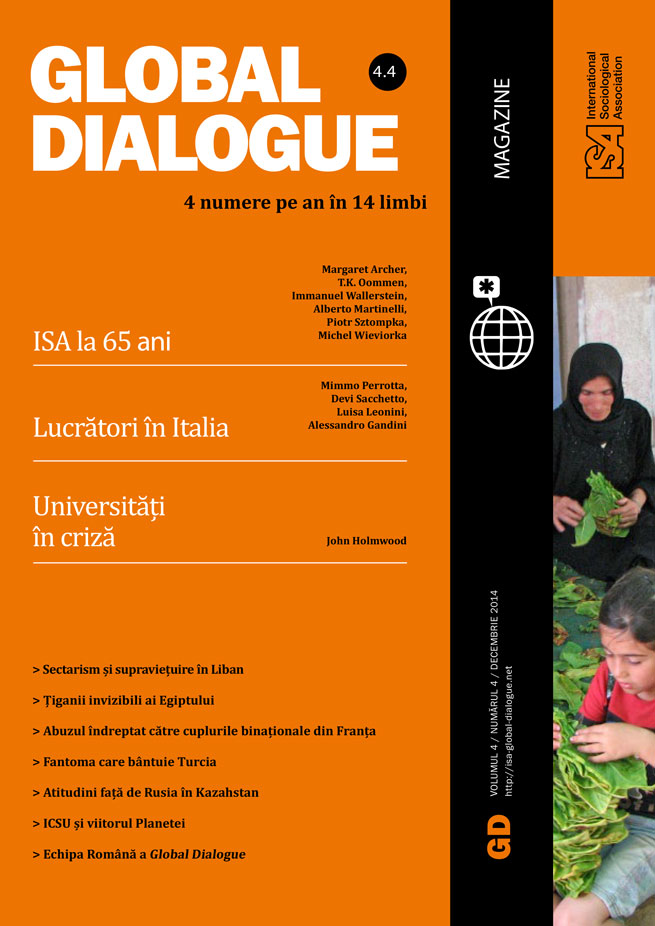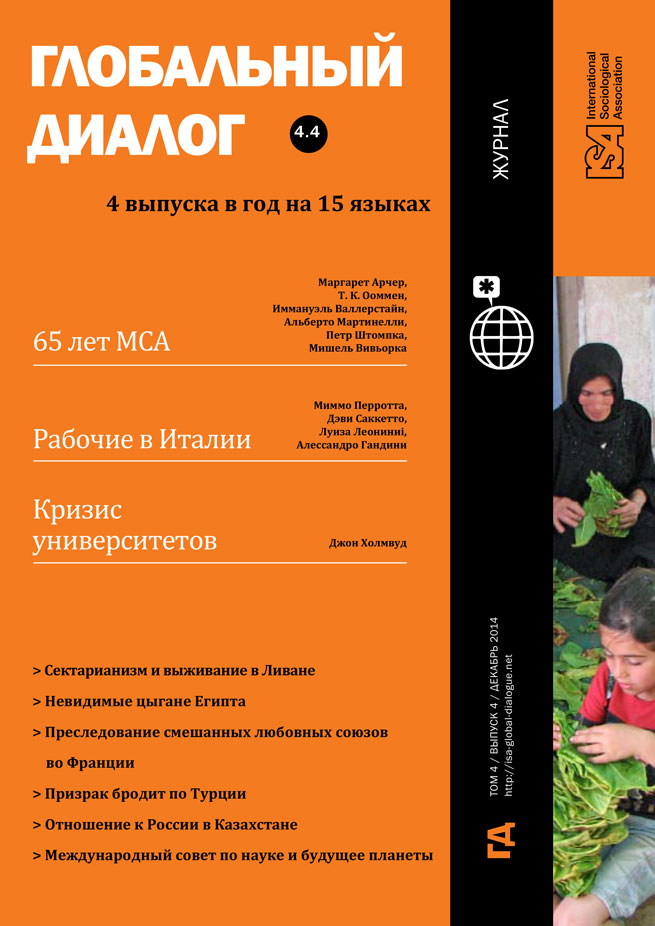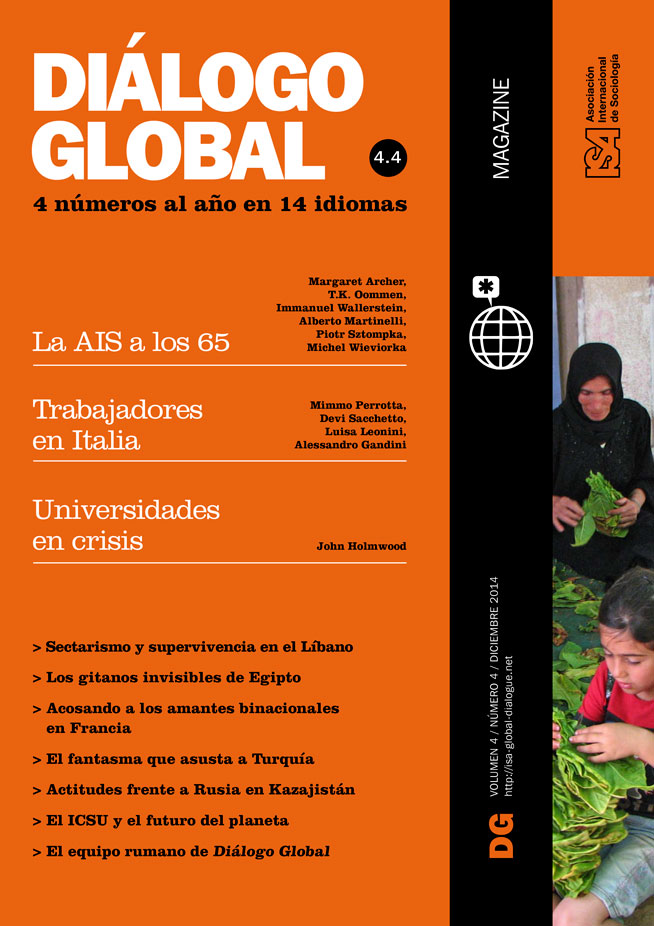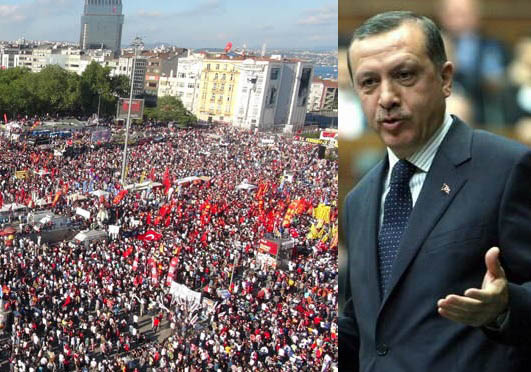Read more about Politics and the Media
The Future of the Planet
by Emma Porio

Manipulating Public Opinion in Kazakhstan
by Almas Taizhanov
December 12, 2014
Over the last two years, Turkey’s social and political developments have triggered new debates on the country’s political regime. What is the nature of the regime, what led to the uprisings in June 2013, and what is the aftermath?[1]
Neoliberalism in Turkey dates back to the year 1980: on January 24, 1980, the advent of Turkey’s structural adjustment program and on September 12, Turkey’s military coup d’état. The military came to power with two overriding objectives: first, to tame the political left and trade unions; and second, to continue the process of economic restructuring, maintaining the support of the Turkish bourgeoisie as well as western capitalist countries and the Bretton Woods institutions. The post-military regime era was very much in line with the New Right politics.
Twenty-two years later, in 2002, the Justice and Development Party (JDP) won a parliamentary majority – the first time in fifteen years that any party governed alone. Markets in general responded positively because, as a Merrill Lynch analysis pointed out, “the arrival of a single-party government would strengthen Turkey’s economic balances.” The party did not disappoint: a few months after it took office, the government declared that to end the ongoing economic crisis, it would minimize state involvement in economic activities, and privatize state economic enterprises— which has remained the JDP’s main fiscal strategy.
In May 2013, then Prime Minister Tayyip Erdoğan revealed the government’s redevelopment plans for Taksim Square, a central İstanbul area that has been the venue of political protests for decades. Adjacent to the Square, Gezi Park is one of the few remaining green spots in the city center. Redevelopment plans included reconstruction of a mosque in Taksim Square and a historical military barrack in the Gezi Park — now slated to include a shopping mall. The Prime Minister also informed the public about other government mega projects, including a third airport and a third bridge over the Bosporus.
Like every single piece of legislation the JDP had passed, these plans had not been discussed in parliament, let alone with any civil society organization. The Union of Chambers of Turkish Engineers and Architects and the Union of Chambers of City Planners immediately reacted; together with environmental activists, both organizations declared that they would block construction vehicles from entering the Park. On May 28, they pitched the first tents.
At dawn on May 31, police violently attacked the protestors, burning the tents and using excessive force, tear gas and water cannon on even non-resisting protestors. Defending the police, the Prime Minister criminalized the protestors, calling them “extreme groups” and çapulcu (looters or marauders).
That evening, opposition groups called for solidarity with Istanbul’s protesters, and millions rushed to parks in every Turkish city to protest the violent police crackdown, chanting “Everywhere Taksim, everywhere resistance,” “Dictator resign!” and “Jump! Jump! Whoever does not jump is Tayyip!”
This reaction was not surprising, as tensions and discontent had been growing. On December 18, 2012, police had brutally attacked a peaceful student protest when Erdoğan visited the Middle East Technical University (METU) to observe the launch of a military satellite. Instead of initiating an investigation into excessive police force, the Prime Minister attacked the faculty, saying, “Shame on professors who raised those students. Instructors first must teach their students how to be respectful.” Subsequent protests at METU and solidarity protests on campuses throughout the country were repressed, prompting international scrutiny. In April 2013, the Emek theatre was demolished to make room for an entertainment and shopping venue, generating widespread protests; again, peaceful demonstrations were dispersed with water cannons and pepper gas. The government’s disguised authoritarianism and conservatism became more evident in late May 2013 with a new law restricting the sale of alcohol – a law Tayyip Erdoğan explicitly noted sought to both protect youth and enforce religious laws. Around the same time, a kissing young couple was criticized in a subway station announcement; in protest, hundreds came together to kiss in the same station.
In response to the rising protests in solidarity with those in the Gezi Park, Erdoğan claimed he was “barely holding back the 50 percent” who had elected him, he said “there may be thousands of protesters on the streets, but I am able to bring millions” onto the street. Buses transported his supporters to public meetings protesting the Gezi demonstrations; crowds chanted, “Let’s crush Taksim” and “Minority, don’t test our patience”.
The Gezi Resistance questioned the nature of the political authority and undermined JDP rule, creating fissures in the state’s legitimacy. Ironically, this resistance catalyzed a regime change from disguised conservative authoritarianism to overt reactionary autocracy. Since July 2013, instead of addressing complaints, the JDP has criminalized its opposition, calling its efforts to weaken the government “civil coup attempts.”
Immediately after widespread corruption allegations against the Prime Minister, his family and his cabinet members, Erdoğan launched a battle against the Gülen Brotherhood and what was called a “parallel structure” within the state. An audio recording – reportedly made on December 17 (the day sons of three ministers were arrested for corruption and bribery allegations) – was posted on the internet, in which a man alleged to be Erdoğan orders his son to dispose of vast amounts of cash. Following this Erdoğan claimed there had been “a coup attempt” of “lobbies” and “dark powers” meant to weaken the government in advance of upcoming elections, and demanded preemptive measures. Soon afterwards, the JDP-dominated parliament passed new laws granting intelligence service personnel immunity, and curbing freedoms of the press, expression and information. Nonetheless, on August 9, Erdoğan was elected President with 51.8% of votes cast, in an election with a 73.4% turnout. During the campaign, Tayyip Erdoğan said repeatedly that he would be a “hands-on executive President”, unlike his ceremonial predecessors. He seems determined to exercise the full powers granted to him, chairing cabinet meetings and appointing university rectors and some members of top judicial bodies. De jure parliamentarianism with de facto presendentialism would mean ruling without accountability – a perfect recipe for overt autocracy.
In the face of this regime change, the Turkish state under the control of the JDP government is suffering a deep legitimacy crisis. A specter is haunting the President and his government, the specter of Gezi Resistance…
[1] The author will provide sources upon request.
Aylin Topal, Middle East Technical University, Ankara, Turkey <taylin@metu.edu.tr>
This issue is not available yet in this language.
Request to be notified when the issue is available in your language.
If you prefer, you can access previous issues available in your language:
